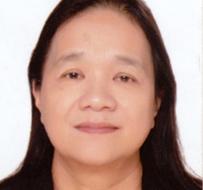
Indigenous peoples have in-depth knowledge of the environment amassed and refined through generations of close contact with the land. In the era of climate change, indigenous peoples across Asia are drawing on their knowledge and customary practices to adapt to the changing climate.
Pastoralists in the Himalayan region move from pasture to pasture seasonally to allow the land to regenerate. Indigenous communities in Bangladesh are adapting to increased flooding and salinization by cultivating saline-tolerant reeds and fruit and timber trees. Where storm surges are not an issue, floating vegetable gardens are created in flood-prone areas.
For more information as how indigenous peoples across this region and the world are exchanging experiences, building capacity for engagement, and contributing towards climate policies and actions, please explore the LCIPP dedicated web portal.
You are invited to reach out to the regional representative and the alternate, and to share your experiences through the ways to engage button on this web portal.
- Raja Devasish Roy (COP 26)
- Nima Lama (COP 26)
- Ronaldo Ambangan (COP 26)
- Nicky Batang-ay (COP 27)
- Lakpa Sherpa (COP 27)
- Mamta Kujur (COP 27)
- Sakda Saenmi (COP 27)
- Hla Doi (COP 28)
- Anne Lasimbang (COP 28)
- Monika Marandi (COP 28)
- Pasang Dolma Sherpa (COP 28)
- Chyongyung Murong (COP 28)
|
Organization |
Vision/Objective |
Contact details |
|---|---|---|
|
Asia Indigenous Peoples Pact (AIPP) |
Indigenous Peoples’ (IPs) dignified voices and choices in Asia are recognised, empowered and sustainably progressing with fully secured rights and dignity in an environment of justice, peace and equality. |
aippnet.org/ aippmail@aippnet.org |
|
Adivasi Mahila Maha Sangh (AMMS) |
Adivasi Mahila Mahasangh is an open platform of indigenous women dotted across the Jashpur District of Chhattisgarh. We work for the empowerment of our community through democratic space making and creative livelihood enhancement. We envision a world free from gender oppression and violence, where collective ownership and rights to control, sustainably utilize, and manage the mineral wealth and resources of our community will return to the hands of the indigenous peoples of our community. |
|
|
Cambodia Indigenous Youth Association (CIYA) |
CIYA was established by a group of Cambodian Indigenous Students in Phnom Penh in 2005 and was officially recognized by the Royal Government of Cambodia in 2008 with support from HBF. It is the first organization established for indigenous youth and the third indigenous organization established in Cambodia. The original purpose of the development of CIYA was to mobilize indigenous youth as a strong group in which the members could help support each other by acting as a social network in the city, as well as to build their capacity towards working as indigenous community development workers in the future. |
ciyamedia.wordpress.com/ |
|
Cartwheel Foundation |
Cartwheel Foundation, Inc. (CFI) exists to empower Indigenous Peoples’ communities by harnessing self-sustaining capacities through culturally relevant education. |
cartwheelfoundation.org; |
|
Centre for Indigenous Peoples Research and Development (CIPRED) |
Center for Indigenous Peoples' Research and Development (CIPRED) is established in 2011 with an objective for policy research, documentation and publications in the field of natural resource governance, climate change, biodiversity, ecosystem, education, traditional health and livelihoods in relation to Indigenous Peoples. |
https://www.cipred.org.np/; info@cipred.org.np
|
|
Centre for Sustainable Development in Mountainous Areas (CSDM) |
|
http://www.csdm.vn/ |
|
Indigenous Peoples Foundation for Education and Environment (IPF) |
Vision: Indigenous peoples in the Greater Mekong Sub-region are aware and fully participate in the realization and protection of their distinct rights particularly on indigenous education and natural resource management. |
https://ipf.or.th/?page_id=580&lang=en |
|
Indigenous Peoples' International Centre for Policy Research and Education (TEBTEBBA) |
TEBTEBBA envisions “A world where indigenous peoples’ rights, embedded in the UN Declaration on the Rights of Indigenous Peoples (UNDRIP) and other Human Rights Conventions and instruments, are respected, protected and fulfilled; where there are unified yet diverse and vibrant indigenous peoples’ movements, formations and communities at various levels, which persist in asserting indigenous peoples’ human rights and achieving sustainable, self-determined development; where respect for diversity, human rights, solidarity and reciprocity with nature and all creation is the basis of coexistence between peoples and between human beings and the natural world.” |
https://tebtebba.org/index.php; |
|
Indigenous Peoples' Alliance of the Archipelago (AMAN) |
|
https://www.aman.or.id/; rumahaman(at)aman.or.id |
|
Indigenous Women Legal Awareness Group (INWOLAG) |
We are a non-profit, non-governmental, non-political organization established in the year 2000 with the aim of promoting legal rights and awareness among the members of the indigenous/ethnic community. We see women as a diverse group in terms of culture, language, way of living, status, position, literacy, access to resources, and access to decision making, access to services etc. We classify women in these terms and orchestrate our work to meet the needs of each category of women. We mainstream gender equality in our work and also work for marginalized communities of our nation. |
https://inwolag.org.np/ |
|
Institut Dayakologi |
|
https://dayakologi.id/home |
| Jashpur Janvikas Sanstha (JJVS) | https://jashpurjanvikas.org/ | |
|
Maleya Foundation Indge |
Maleya is guided by a vision of a society that is free from discrimination and exploitation of all forms. It is a society that draws inspiration from its ancient traditions of collective ownership and community participation that are respectful of diversity in nature and among peoples and communities. Among these is the common heritage of ‘jum’ or swidden cultivation that teaches communities the value of direct democracy, egalitarian cooperation, pluriculture, multicultural traditions and the need for innovation and adaptation. Maleya sees a future that retains its rich community values and yet adopts modern education and technology to achieve sustainable and people-oriented development, which is also respectful to ecology and the environment and the cultural heritage of peoples and communities. |
www.maleya.org/ |
| Nepal Federation of Indigenous Nationalities (NEFIN) |
https://www.nefin.org.np/ |
|
|
Nilgiris Tribal Group Federation |
|
https://www.n-pvtgfed.org/ |
|
PACOS Trust |
PACOS Trust is a community-based organization dedicated to supporting indigenous communities in Sabah. Although registered under the Trustees Ordinance (Sabah) only in 1997, we have been actively involved with communities since 1987 as a different legal entity. PACOS is an acronym for ‘Partners of Community Organizations in Sabah’. |
https://pacostrust.com/ |
|
Promotion of indigenous and nature together |
POINT (Promotion of Indigenous and Nature Together) was established in March 2012. It is started as a response to the lack of organization led by “Indigenous Peoples” working for Indigenous Peoples’ issues in Myanmar. In the past, only the religious organizations are the strong civil society working for its related indigenous people’s needs of humanitarian and development assistance to some extent. Therefore, the organization POINT was formed in order to fill the gap of promoting the rights of indigenous peoples along with increased awareness on environmental related knowledge. |
https://www.pointmyanmar.org/ |
|
Sherpa Association of Nepal ( SAN) |
|
|
|
SILDAP-Southeastern Mindanao, Inc |
SILDAP-SE Inc. envisions a society where the indigenous peoples enjoy the abundance and bounty of their ancestral domains; stand proud, with dignity in their rich culture and traditions; live in peace and harmony with nature and people; partiicipate in decision-making process affecting their lives; and determine and manage their future as self-governing communities in the context of national sovereignty. |
sildapseinc.wordpress.com/about/ |
|
Tarum Development Organization (TDO) |
|
www.facebook.com/TDO.CHT/ |
|
Wild Foods, Biodiversity and Livelihood (WFBL) |
The Wild Foods, Biodiversity and Livelihood (WFBL) Network is an Expert Group supported by the Swedish International Agricultural Network Initiative (SIANI). The group is composed of individuals and organizations from multiple sectors, tied together by a common interest to consolidate knowledge about wild foods in Asia and its links to food security, poverty reduction and sustainable forest management. |
https://www.wildfoodsasia.com/ |
Pagination
News items relevant to indigenous peoples in the region will appear here.


